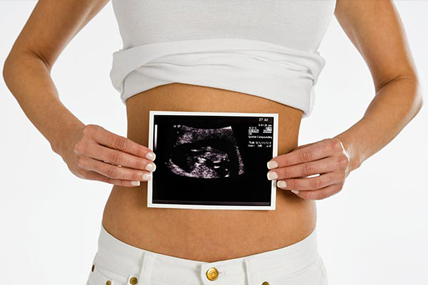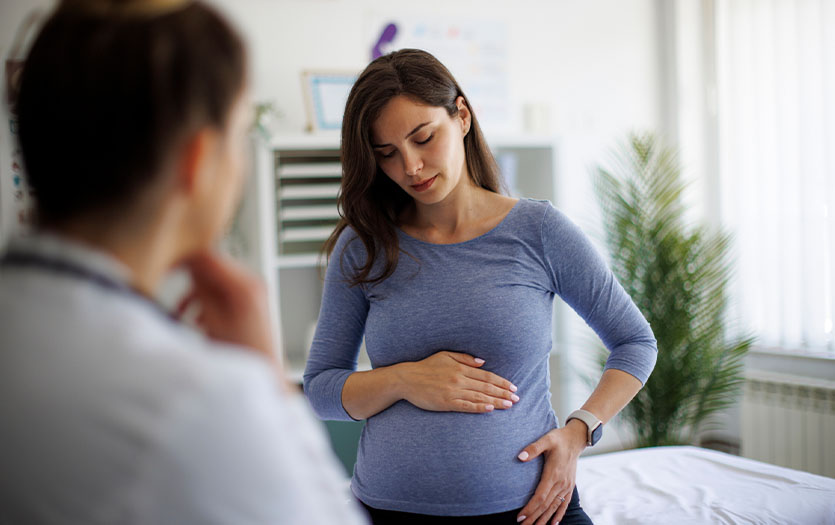Congratulations, you’re pregnant! Now what?
A normal human pregnancy lasts about 40 weeks from conception to the birth of your baby. Each trimester of pregnancy is marked by developmental changes in the baby. This time is roughly divided into three periods:
- The first trimester — conception to week 12 of the pregnancy
- The second trimester — 13 to 27 weeks of pregnancy
- The third trimester — week 28 of pregnancy until birth
First Trimester — Mom
A healthy first trimester is essential to the development of the baby. You may not be showing on the outside, but inside your body, all the major organs and systems of the baby are forming.
Normal changes you can expect during your first trimester include:
- Nausea
- Frequent urination
- Breast and nipple tenderness
- Fatigue
- Bloating
- Constipation
To help alleviate some of your symptoms, you can:
- Increase your rest periods during the day
- Eat several small meals (instead of three larger ones)
- Increase your intake of fluids and fiber
As the embryo (egg) implants itself into the uterine wall, several developments occur, including the development of the amniotic sac. Filled with fluid produced by the baby, this sac — along with the membrane covering the fetal side of the placenta — surrounds the baby to regulate temperature and protect it from injury. The placenta, a special organ that forms only during pregnancy, connects to the uterine wall.
First Trimester — Baby

Four weeks
- Your placenta (also known as the afterbirth) begins to develop
- The heart, digestive system, backbone and spinal cord begin to form
- The embryo reaches one-quarter inch in length
- The single fertilized egg is now 10,000 times larger than its size at conception
Eight weeks
- Eyes, nose, lips, tongue, ears and teeth are forming
- The heart is functioning
- The embryo is 1 inch in length and is moving, although you cannot feel the movement
12 weeks
- Your baby is 2.5 to 3 inches long and weighs about one-half to 1 ounce
- Your baby is now recognizable in form with the full development of arms, hands, fingers, legs, feet and toes
- Nails start to grow
- Earlobes begin to form
- Eyes are near full development
- Your baby has now developed most organs and tissues



